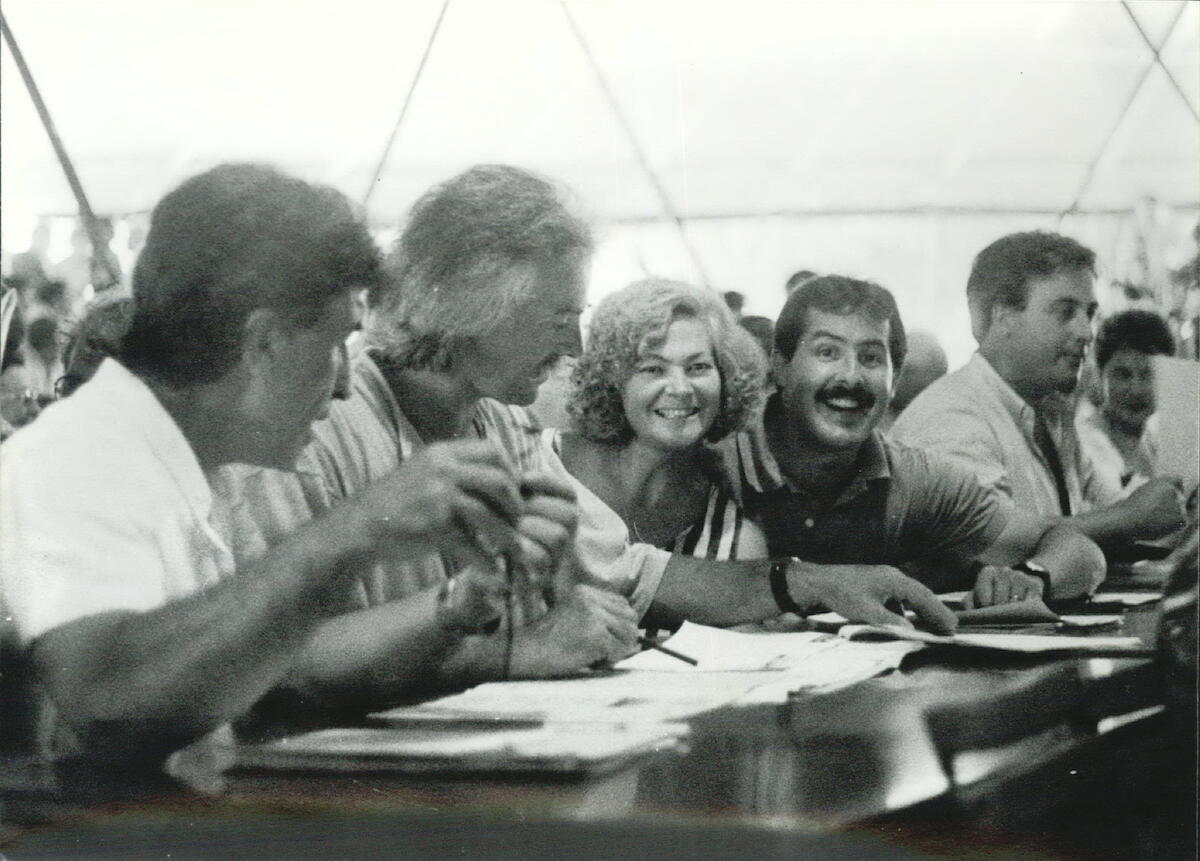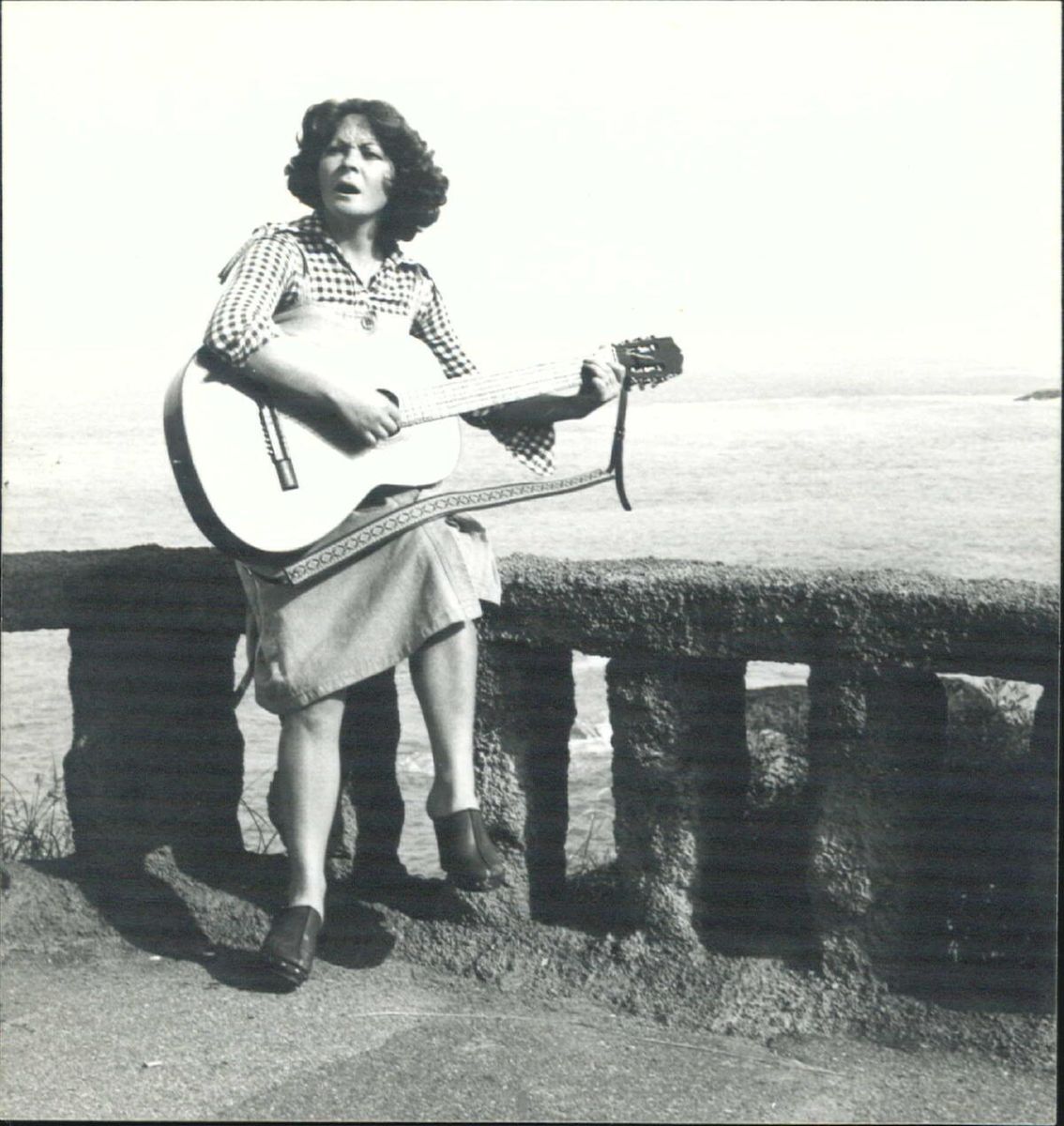
- Singer Maite Idirin died on 20 January. He lived in Angelu and a funeral mass will be held on Wednesday at 10:30. It has been one of the best known voices of the Basque song. She fought for women's rights throughout her life.

The family will receive visits on Tuesdays throughout the day and Wednesday until 10:00 at the funeral of Angelu (Camino Chrysantèmes 9, Anglet). The funeral mass will take place at Saint Leon de Anglet Church on Wednesday at 10:30 a.m.
Translation into Basque
Slaya placed in 2006 by Miel Anjel Elustondo in her interview: Maite Idirin (Ugao, 1943). Singer. In their youth, the desire of post-war nationalists focused on dance and choir. His hobby of music led him to the world of the song, accompanied by good guitars and poems. He started singing village to town in 1968, but in 1969 he had to flee first to Baiona and then to Paris. You earn your life singing at the Teatro de Café Candelaria in the Latino neighborhood. He studied sociology in Vincennes. She was husband to Jokin Apalategi. They finished their studies and returned to Bayona, still refugees. They opened the Zabal library of Baiona and began studying in the conservatory with two or three small, long albums (the father's house) recorded. He then recorded his album Ahizpatasuna, but followed the path of classical music. He sang and recorded classical Basque music. He ran a radio show on classical music in the Basque Country.

Singing the Parishes in Basque
In the ARGIA file we found three interviews with Idirin, the oldest in 1971 and the most recent in 2005.
Interview 1971 on Iñaki Beobide, a young Basque bodybuilder who died. He called the Euskal Kantari Bat interview in Paris. He left Baiona to Paris and asked him how he works in his life and as a singer. By then he had already published a record and two others were on the way. For the Paris he told how he sang and what the Basques wanted:
“These songs [traditional Basque songs] I sing them, above all, for the satisfaction of people from outside, I offer them to citizens through a record. Those are the songs I really want and the people will soon be able to listen to my latest songs.”
Beobide asked the Parisians for singing in Basque, and so Idirin said: “If you’re a good artist, it’s not an obstacle. You have to be an artist, have personality, do something with singing.”
The women's revolution and the Basque revolution, together or separately?
In the 1978 interview, the interviewee and interviewer spoke about the song, but they emphasize the lack of equality between women and men. The interviewer is Ermiñe Madariaga, who at that time signed the articles with Kukusu. The interview begins with the question: “If we ask her this question, it’s because you’re an Euskal-Herria singer, but also because you’re a woman singer, and because women don’t sing, why do you think that’s it? ". And so the answer: “I think the fact that women in the song are less than men has to do with what happens in other trades or trades. Women have not been trained, a profession has been encouraged. There is no pleasure like man.”

In the dialogue, Idirin's awareness of women's liberation and rights is evident, and the interviewer threw him on this issue. Madariaga asked if the revolution of wives and the Euskadi revolution were going together or special. Idirin offered Madariaga a great reflection:
“A binomial appears to emerge between the Basque revolution and that of women. It's the only revolution for me. In the Basque revolution comes the revolution of women. And if in the Basque revolution women do not have the same rights and are not free, it will not be a real revolution. To date, the Basque revolution can be considered male. What do we women do? Help make this happen. I believe that women have a great role in the Basque revolution. No visible actions are needed. Unfortunately, male schemes are also inside. If [sic] recognizes that only expectation action is revolutionary, we are lost. My daily work is as revolutionary as that. What we have to change is everyday life, our intestines are ideas, they're far away. The Basque revolution is a long way away. The goals are very far away, and perhaps, as we have them in ideas, we will never have them in reality. I believe that the important thing is the road. Maturation is utopian. If we don't make revolution along the way, we won't get to the desired place. Perhaps the contradiction between men and women is that when for men it is revolutionary power, if for women we translate their writings, we will realize that power is to destroy and deny.”
The last interview was held by Miel Anjel Elustondo in October 2006: "Slowly it changed the way I made music."